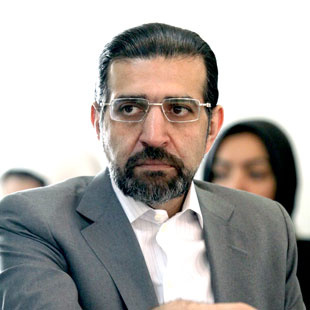Editorial
Israel Propagates War

By: Sadegh Kharrazi
This week Washington witnessed lots of Iran bashing and talks of war. Israeli officials and lobby as well as neoconservatives in America increased their rhetoric against Iran putting more pressure on the U.S. administration to adopt a more bellicose approach towards the Islamic Republic. The planned visit to Washington by the Israeli prime minister was an opportunity for the hawks to raise the heat against Iran.
The story began by President Obama's speech at the American Israeli Public Affairs Committee (AIPAC) on Sunday. During his speech before the influential Israeli lobby, Obama tried to harden his position on the use of force against Iran while emphasizing on the need to continue on the path of diplomacy. He said, "I have a policy to prevent Iran from obtaining a nuclear weapon. And as I have made clear time and again during the course of my presidency, I will not hesitate to use force when it is necessary to defend the United States and its interests." He also criticized those who are advocating war saying that "Already, there is too much loose talk of war."
The next day, the Israeli prime minister went to the White House to make his case for war on Iran but this time Obama was less enthusiastic on the use of force and instead emphasized more on diplomacy referring to the next round of talks with Iran as a "window of opportunity." In his press conference on Tuesday he criticized the Republican candidates who are beating the drums for war and attacking the administration's Iran policy in order to score political points in an election year and cautioned against premature use of force.
Netanyahu's policy, however, was much clearer. His agenda was focused on branding Iran as a threat determined to develop nuclear weapons and use them to annihilate Israel, hence no need to waste time to enter into talks with Iran on the nuclear issue. He argued in Washington that sanctions or dialogue with Iran have not brought about any tangible results in preventing Iran from what he called procuring nuclear weapons. That was why during his entire stay in America he never advocated non-military approach to the Iran's nuclear issue saying "we waited for diplomacy to work; we've waited for sanctions to work; none of us can afford to wait much longer." It is interesting to note that before his Washington visit, Netanyahu stressed that resumption of talks should be contingent upon suspension of all Iranian nuclear activities including enrichment, a condition considered not appropriate even by the U.S. government.
Although Obama was very generous in supporting Israel during his AIPAC speech and in his meeting with Netanyahu, Israel was not satisfied with Obama's policy on Iran particularly his insistence on the need to engage in talks with Iran. Israeli Finance Minister said that "what we have to do now is not give the same speech of all the options are on the table, but rather set a very clear deadline. That is almost the only chance of getting the Iranians to stop their behavior."
While Obama has been resisting the use of force, he is under tremendous pressure from Israel, Republican presidential candidates and Congress to change course and go for military option. Now, there are even some attempts in the Congress to authorize the administration to wage war against Iran.
Since its inception, Israel has capitalized on war and instability to further its interests in the region. There are many examples proving the fact that Israel has defined a path for its survival which circles around chaos and turmoil. Therefore, it is not surprising that while the news of the resumption of nuclear talks is welcomed everywhere, it is considered a nightmare in Tel Aviv.
All sides should consider the upcoming nuclear talks as an opportunity to build confidence and work towards resolving the problem. It is encouraging that Iran has taken some steps including the expansion of IAEA visits which raise hope that this time the talks will bear fruit. There is no need to emphasize that due to existing suspicions between two sides, one cannot expect to resolve this issue overnight. What is required is good will and patience coupled with perseverance and hard work. The voices of evil who promote war and turmoil should not set the agenda for the talks.

